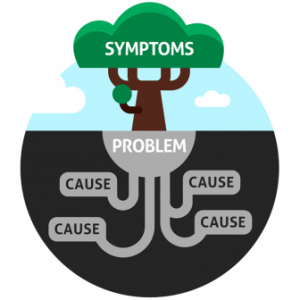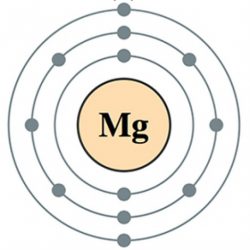 I suffered from insomnia since 2006 when my late husband passed away. I would go to bed so tired and actually sleep for about an hour. Then I would wake up and be awake for the rest of the night. By the morning, I was so exhausted, I could hardly get out of bed. I was always grumpy and had little incentive to do anything and had to really push myself to do my work. It was debilitating and frustrating and I became really depressed from it. This was apart from all the other niggling conditions I was contracting. The insomnia though, was the worst symptom I had and after years of not sleeping, it was affecting my health.
I suffered from insomnia since 2006 when my late husband passed away. I would go to bed so tired and actually sleep for about an hour. Then I would wake up and be awake for the rest of the night. By the morning, I was so exhausted, I could hardly get out of bed. I was always grumpy and had little incentive to do anything and had to really push myself to do my work. It was debilitating and frustrating and I became really depressed from it. This was apart from all the other niggling conditions I was contracting. The insomnia though, was the worst symptom I had and after years of not sleeping, it was affecting my health.
The symptoms of insomnia are as follows:
- Difficulty falling asleep at night.
- Waking up after an hour or two and staying awake.
- Waking up numerous times during the night.
- Waking up too early in the morning.
- Feeling tired and not refreshed after a night’s sleep.
- Falling asleep during the day.
- Being tense, irritable, depressed and anxious.
- Having brain fog.
- Difficulty in focusing.
- Short attention span.
- Memory loss.
- Making mistakes at work.
- Loss of incentive and drive.
 Does watching TV help?
Does watching TV help?
All I could do was watch TV or do some work on the computer which didn’t really help. In fact, it is thought that watching a flickering screen will actually stimulate your mind and keep it active, which is not what you want. You will probably fall asleep watching TV if you don’t suffer from insomnia, but if you have trouble sleeping, you will likely soon wake up again, which is what I found. But I suppose an hour or two is better than nothing. Having the radio on was more relaxing for me, especially if soft music was playing.
Sleep is so important
Sleep is as important as eating healthily and exercising regularly. If you don’t sleep well, your body will start to succumb to all kinds of conditions such as heart disease. Our lives are so stressful now, it is hard to switch off when you go to bed. Thinking of what you have to do in the morning, making mental lists of all your jobs for the coming day and week, mulling over money problems or stressing over your lovelife.
Wind down before bed
One thing you can do is to wind down before you go to bed. That means turning the TV and computer off for an hour or two. TVs and computers emit blue light which makes our brains think it’s daytime. This means the natural sleep cycle get disrupted. So why not read a book or do something relaxing to calm your mind.
 How about some glasses!
How about some glasses!
Yes I know, turning the TV off early is something most of us won’t do, especially when our favourite programs always seem to be on late. There is another alternative, buy yourself a pair of blue-blocking glasses and wear them for an hour or two before bedtime.
Dimmer switches even!
If you can’t be bothered with the glasses, try putting dimmer switches on your lights and dim them down an hour or two before bed. Don’t put any lights on except the dimmed ones. Make sure your bedroom is completely dark with no lights being emitted from anywhere and that includes the alarm clock and any other electronic devices that have little lights on them. Even the moon can make your bedroom too bright for sleeping so make sure you have heavy curtains or blinds at the windows. It’s surprising how much light can flood a bedroom with just the smallest of light sources.
 Now lets look at the root cause of insomnia
Now lets look at the root cause of insomnia
All the above will help, but you shouldn’t have to be doing all these actions, going to sleep at night should happen naturally without the help of glasses, dimmer switches and blackout curtains.
Lets look at the root cause of the problem. There is something that you’re lacking which is probably causing your insomnia. Those who don’t have insomnia will likely not be affected by lights, the TV or any other source. They just fall to sleep naturally when it’s bedtime. But how many of the population have the luxury of sleeping like a log most nights?
The Guardian reported on a Gt Britain sleep survey:
“The Great British Sleep Survey interviewed 11,129 adults earlier this year. It found that, of those who had trouble sleeping, 55% reported having relationship difficulties as a result, while 77% reported issues of concentration, 64% said they were less productive at work, 83% reported problems with their mood and 93% with energy levels.”
It’s the last two figures that are interesting. It could be a coincidence but these figures are very similar to the estimated levels of magnesium (Mg) deficiency in the general population and it gets worse year on year. The reports of 83% having mood problems and 93% suffering from low energy levels, is particularly telling. A Mg deficiency will show many, many symptoms but low energy levels, depression, anxiety and tension are the most common and can herald the start of a serious deficiency.
Some symptoms of Mg deficiency include:
- Adrenal Fatigue

Asthma - Angina
- Anxiety
- Asthma
- Atherosclerosis
- Back pain
- Blood Pressure (Hypertension)
- Brain Fog
- Constipation
- Cramp

Brain Fog - Cystitis
- Depression
- Diabetes
- Epilepsy
- Fatigue
- Fibromyalgia
- Gallbladder Disease
- GERD
- Glaucoma

Arrhythmia - Gum Disease
- Heart Arrhythmia
- Heart disease
- IBS (Irritable Bowel Syndrome)
- Insomnia
- Kidney Stones
- Migraines
- Muscle spasms
- Muscle Weakness
- Neck pain and cramping
- Osteoporosis

Seizures - Palpitations
- Raynaud’s Syndrome
- Restless Leg Syndrome
- Seizures
- Twitches, particularly around the eyes
- Vertigo
How many do you suffer from?
Take a good look at this list and ask yourself, do you suffer from any these conditions. If you do then you’re missing out on a mineral that could make all the difference to your health and quality of life. Insomnia is just one of the symptoms that can be alleviated by taking a good quality Mg supplement and making sure you have a healthy diet.
 Watch your calcium intake
Watch your calcium intake
Some old wives tales need to be kicked to the curb as well, such as drinking milk before bedtime. This may be a nice drink but taking an amount of calcium before bed will not help you relax. Calcium is the mineral of contraction, magnesium is the mineral of relaxation. One of my relatives used to drink a pint of milk on top of a bowlful of cereals before bed. He used to get terrible cramps in the night so often that he had trouble sleeping. The amount of calcium in that milk and also the cereals would be very high, approximately 1000mg. This is way over the amount of Ca needed for the day, let alone having this amount in one go at night. No wonder he was having cramps. Despite being sceptical, he did stop the habit and his cramps stopped too.
Calcium the contraction mineral
If you look at the above list, you can see that many of the conditions display some form of contraction, tightness, tension, anxiety, stiffness and stress. This is a sign of too much Ca and not enough Mg in the body. Unless Ca and Mg are balanced then Ca will not be controlled adequately. Apart from keeping Ca out of the cells, Mg also keeps Ca dissolved  in the blood. Otherwise it will migrate to parts of the body where it shouldn’t be like the soft tissues and muscles. Too much Ca without the protection of Mg can irritate delicate nerve cells causing neurological conditions. Mg keeps Ca out of the cells but if Ca is allowed to stay in the cell it will excite it and kill it. That’s what happens when we die, Ca floods the cells and this starts the process of rigor mortis, the stiffening of the body after death.
in the blood. Otherwise it will migrate to parts of the body where it shouldn’t be like the soft tissues and muscles. Too much Ca without the protection of Mg can irritate delicate nerve cells causing neurological conditions. Mg keeps Ca out of the cells but if Ca is allowed to stay in the cell it will excite it and kill it. That’s what happens when we die, Ca floods the cells and this starts the process of rigor mortis, the stiffening of the body after death.
Our diet is full of calcium
Today’s diet is full of Ca but lacking in Mg and this is causing an epidemic of Mg deficiency and associated conditions and diseases because of it. One of those conditions is insomnia. Another life threatening disease is Atherosclerosis or hardening of the arteries which can lead to heart disease and damage of peripheral arteries.
 Magnesium is vital
Magnesium is vital
If you do have insomnia, there’s a good chance you will have some of the other symptoms associated with a Mg deficiency. Get yourself onto a good quality Mg supplement such as ReMag, Ionic Magnesium, Mg Citrate powder or the topically applied Ancient Minerals. Your mood will lighten and you will sleep better and after a week or two you will notice more benefits such as fewer headaches, reduction of muscle spasms and cramps. You will also be protecting your cardiovascular system from further damage from calcification.
Ches
Spread the word!


I’m currently suffering with insomnia as we speak. It’s almost 11pm where I am (South Africa) and I should be in bed already given the fact that I have to be up early tomorrow morning to help my son to school.
It’s so frustrating to be the only one up at night struggling to sleep while everyone is fast asleep and then you get asked the following morning “Why are you so grumpy?” Aaaaaaargh!
It never occurred to me that it might be related to a deficiency though because I’m a relatively healthy person, will definitely be buying a Mg supplement tomorrow and try it out. A very informative article. Thank you.
Hi there Senzeliwe and thanks for your input. I’m sorry that your have insomnia and I sincerely hope you will try a good quality supplement. If you look at the previous comment you can see what I take and the supplements that I recommend. I don’t know if you can get ReMag in South Africa. It’s very expensive here in the UK but the Ionic Mg is much cheaper. Don’t buy Mg Oxide, it’ll go straight through you with little being bioavailable. You could try a topically applied Mg Chloride, Ancient Minerals is a good one. Good luck with your insomnia. I’m sure you’ll be sleeping like a baby once you start your supplement. Don’t forget to watch your calcium intake and try eating plenty of nuts, seafood and green veggie. Kelp has the highest Mg content. Ches
Also from South Africa – advice for insomnia
best is mag citrate or malate for sleep or glycinate .
Also stop digital 2 hours before bed . Stop eating 2 hours before bed .
No caffeine after noon
Rub lavender and francinsense oil in a carrier on your temples before bed
Go to sleep by 10 pm or earlier for 8 hours sleep
Also consider b complex vit in day for energy
Exercise in am if possible
Green tea before midday is calming
Green smoothies with fiber aids digestion
Apple cider vinegar before meals to aid digestion ( = more energy)
Also wear an eye sleep mask to help with cicadium clock
Some more good tips to try Andrea, thanks for your comments.
Wow, that’s an incredibly in-depth approach to insomnia, well done Ches!
This is a rather nasty condition, a modern one that is. I enjoyed your advice not to watch TV or stay in front of your PC prior to sleeping, since it can disrupt your natural sleep cycle.
And yes, many of us are not familiar with the over-consumption of calcium – indeed it’s not that hard to consume more than you need of it. Great points on how Mag balances things out and helps you avoid some nasty adverse effects of too much Calcium!
By the way, speaking of Magnesium – any decent Magnesium-based supplements that you can recommend?
Thanks for your positive comment and input Simon. As for a quality supplement, I would recommend Dr Dean’s ReMag or Ionic Magnesium both of which are Mg Chloride. It comes in a concentrated form which needs to be put into water. Some find the taste too bitter and salty (like hubby) and a dash of cordial masks it well. The taste doesn’t both me and I take 600mg elemental (4 doses of 2.5ml per dose ie. 10ml total) per day, putting all doses into a litre of water and drinking is throughout the day. This gives the body its Mg in a more natural manner and not all at once. If I am stressed or injured (just tripped over the dog and bruised all my ribs) I up the dose. You can always tell if you are taking too little, because your symptoms will return. Another good supplement especially if you have a sluggish digestive system, is Mg Citrate powder. It’s tasteless so is brilliant for kids. The dose can easily be adjusted to suit and it can be put into drinks, soups, porridge, stews etc.. If your child suffers ADHD, ADD or similar problems then it’s a good chance they are Mg deficient. Many kids also get constipated with these conditions. Ches
Hi chess great article on insomnia really enjoyed it, also has been very helpful to me as well. I like a lot of people suffer from insomnia, it is the most frustrating condition to suffer from. I feel so tied the next day and it is very hard to concentrate and perform my daily duties.
I light candles at night and lower the lights i find that helps as well, and try not to watch the TV for about a hour before bed. I am going to try Magnesium tablets and see if these will help me, i have some other health issues as listed on your site and i am hoping this will help as well. In your opinion can you take to much magnesium and how would it effect you?
Thanks for the input Gareth. You cannot overdose on magnesium. If you take too much it will just give you loose stools, that’s why it’s so safe. Make sure you take tablets that are of good quality, not Mg oxide for example. Mg in multivits is usually sub standard as well and is often coupled with an excessive amount of Ca. Have a look at this Best Magnesium Supplements To Take to give you an idea of which supplement is best for you. Good health to you, Ches
Thank you for writing this incredibly helpful article! I definitely have trouble winding down at night and find myself staying up way too late, often because I have more inspiration to write. Since I am a night owl and tend be more productive in my writing at night (on the computer), I think I will invest in a pair of those glasses you mentioned. Also, very good to know about the benefits of Magnesium–I had no idea! I have been taking calcium, but this makes me think I should reevaluate my supplements.
Thanks Audrey for your comment and input. I am the same, I seem to do my best writing at night but then, it keeps the brain active which isn’t conducive to sleep. Even so, it doesn’t matter to me now because if I’m replete with magnesium, I sleep when I hit the pillow! Magnesium is a win, win supplement. It is vital and will protect you from disease for now and in later life. Good health to you, Ches